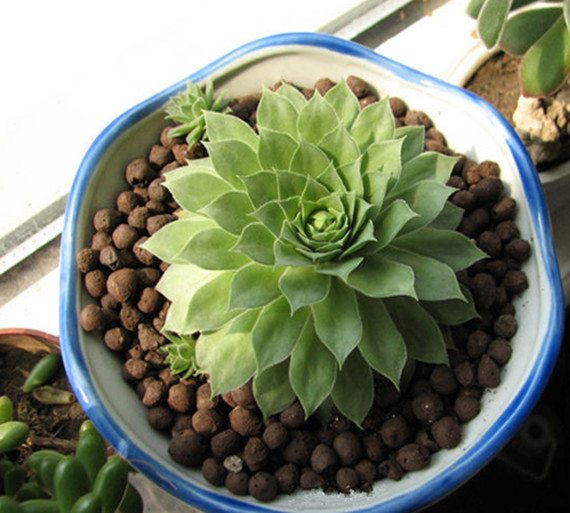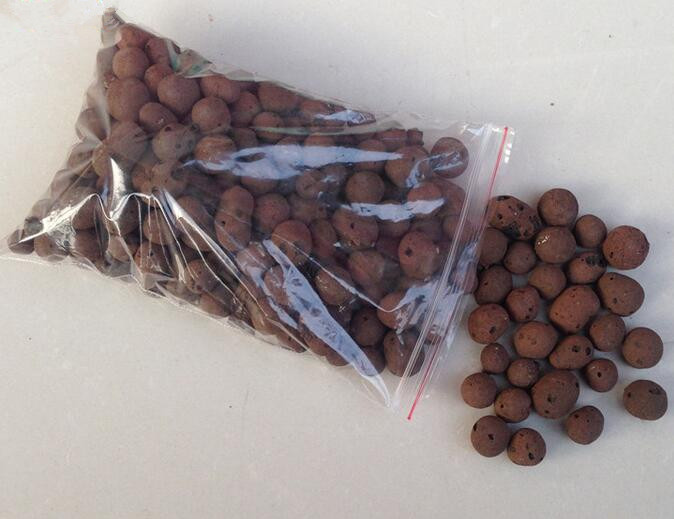Strategic Investment in Advanced Hydroponic Substrates
In the rapidly evolving landscape of controlled environment agriculture (CEA) and sustainable horticulture, the choice of growing media significantly impacts yield, resource efficiency, and overall system longevity. Among the pioneering solutions, Wholesale LECA clay Balls used Plants growing (Lightweight Expanded Clay Aggregate) stand out as a superior, inert, and reusable substrate. These engineered porous ceramics provide an optimal balance of aeration and moisture retention, crucial for robust root development in hydroponic, aquaponic, and conventional container111 systems. As global food security concerns escalate and precision agriculture gains traction, understanding the technical specifications, manufacturing integrity, and long-term economic benefits of high-quality LECA becomes paramount for large-scale agricultural operations, commercial greenhouses, and specialized plant nurseries aiming for peak operational efficiency and ecological responsibility.
The demand for reliable and consistent growing media has spurred advancements in LECA production, ensuring superior physical and chemical stability under diverse cultivation regimes. Our focus here is to delineate the critical factors influencing the performance of Wholesale LECA clay Balls used Plants growing, from their meticulous manufacturing process to their diverse applications and the tangible advantages they offer to modern agricultural enterprises. This includes a deep dive into material science, quality control protocols, and the economic implications of integrating such advanced substrates into high-volume crop production cycles.
Precision Manufacturing & Stringent Quality Assurance
The production of premium Wholesale LECA clay Balls used Plants growing is a sophisticated industrial process demanding precise control over raw material selection and thermal expansion. It begins with the careful sourcing of specific clay types, primarily montmorillonite, kaolinite, and illite, chosen for their low plasticity and high iron oxide content, which are essential for uniform expansion. This raw clay undergoes thorough pre-treatment, including crushing, homogenization, and moisture content adjustment, to create a consistent feed for the rotary kiln. The manufacturing process is fundamentally a pyroprocessing technique, ensuring the inertness and durability of the final product.
Once prepared, the clay is fed into large, inclined rotary kilns, where it is subjected to high temperatures, typically ranging from 1100°C to 1300°C. This rapid heating causes the organic matter within the clay to decompose, releasing gases that expand the molten clay particles, forming a porous internal structure while simultaneously vitrifying the outer surface. This vitrified shell imparts strength and reduces water absorption to a controlled degree. Post-kiln, the expanded clay is cooled rapidly, then sorted into precise size ranges through sophisticated sieving mechanisms to meet various horticultural demands. Each batch undergoes rigorous quality control, including density checks, pH stability tests, and structural integrity assessments, adhering to international standards such as ISO 9001 for quality management and ASTM C331 for lightweight aggregates. The inherent inertness of LECA ensures a stable pH environment for plant roots, an essential factor in nutrient uptake efficiency and preventing chemical interactions that could harm delicate root systems. This meticulous process ensures a consistent, high-quality product with an extended service life, making it a reliable choice for critical agricultural applications.

Fig 1: Schematic of the LECA Manufacturing Process, highlighting key stages from raw material to finished product.
Technical Specifications and Performance Metrics
Understanding the detailed technical specifications of Wholesale LECA clay Balls used Plants growing is critical for optimizing agricultural system design and performance. These parameters directly influence water retention, aeration, and overall substrate longevity. Below is a comprehensive table outlining key technical data for typical high-grade horticultural LECA:
These detailed specifications highlight why Wholesale LECA clay Balls used Plants growing are a preferred choice for professional growers. Their consistent performance across these metrics ensures predictable growth cycles, optimized resource utilization, and ultimately, higher yields and profitability for commercial operations.
Diverse Applications and Key Advantages
The versatility of Wholesale LECA clay Balls used Plants growing extends across a myriad of agricultural and horticultural applications, owing to their unique physical properties. They are predominantly used as a growing medium in various soilless cultivation systems, including deep water culture (DWC), nutrient film technique (NFT), ebb and flow (flood and drain), and drip irrigation systems. Their lightweight nature also makes them ideal for rooftop gardens and vertical farming installations, where structural load is a significant consideration. Beyond active growing, LECA balls serve as excellent drainage layers in traditional potted plants, preventing waterlogging and promoting healthier root environments. In aquaponics, their inert nature ensures they do not alter water chemistry, making them safe for aquatic life.

Fig 2: LECA clay balls showcasing their use as a hydroponic growing medium.
Key advantages of employing Wholesale LECA clay Balls used Plants growing include their exceptional aeration properties, which are critical for preventing root rot and enabling optimal oxygen exchange around the root zone. Their consistent pore structure ensures efficient nutrient delivery and drainage, preventing salt buildup. Unlike organic substrates, LECA is sterile, pest-resistant, and pathogen-free, significantly reducing the risk of plant diseases and the need for chemical treatments. Furthermore, LECA is highly reusable; it can be thoroughly cleaned and sterilized between growing cycles, offering significant cost savings and contributing to sustainable agricultural practices. Its excellent thermal insulation properties also help in mitigating extreme temperature fluctuations around the root zone, providing a stable microclimate for sensitive plants. This combination of benefits translates directly into increased crop yields, reduced operational costs, and enhanced environmental sustainability for large-scale agricultural operations.
Market Trends, Manufacturer Insights & Custom Solutions
The market for Wholesale LECA clay Balls used Plants growing is experiencing robust growth, driven by the escalating demand for controlled environment agriculture and the increasing adoption of sustainable farming practices. Industry trends indicate a significant shift towards inert, reusable growing media that minimize environmental impact while maximizing productivity. Manufacturers are responding by focusing on enhanced quality control, ensuring consistent particle size, optimal porosity, and chemical stability, which are paramount for sophisticated hydroponic systems. The integration of advanced drying and screening technologies also contributes to superior product uniformity, a key factor for large-scale commercial growers seeking predictable outcomes.
For B2B decision-makers, selecting a manufacturer of Wholesale LECA clay Balls used Plants growing involves assessing not just product quality but also the supplier's capacity for customization and technical support. Leading manufacturers offer tailored solutions, including specific particle size distributions to suit diverse crops and hydroponic setups, and even specialized coatings for particular nutrient delivery requirements. Establishing a strong partnership with a manufacturer capable of delivering consistent quality at scale, providing comprehensive technical data, and offering reliable logistics is crucial for maintaining efficient supply chains and achieving optimal agricultural output. This collaborative approach ensures that the LECA solution is perfectly aligned with the client's operational demands and long-term sustainability goals.
Case Studies & Client Success Stories
The practical advantages of Wholesale LECA clay Balls used Plants growing are best illustrated through real-world applications and documented success stories from our diverse client base. For example, a major commercial greenhouse operation specializing in leafy greens in the Netherlands transitioned its cultivation system from rockwool to LECA, reporting a demonstrable 15% increase in yield per square meter within the first two harvest cycles. This improvement was attributed to enhanced root aeration, reduced instances of root disease, and the pH-neutral properties of LECA, which allowed for more precise nutrient solution management and less frequent adjustments.
In another instance, a large-scale urban vertical farm in Singapore adopted our Wholesale LECA clay Balls used Plants growing for their tiered systems. The lightweight nature of the aggregate significantly reduced the structural load on their multi-story facility, enabling more efficient space utilization. Furthermore, the reusability of LECA allowed them to sterilize and redeploy the medium, cutting down on substrate replacement costs by an estimated 30% annually and significantly reducing waste generation, aligning perfectly with their corporate sustainability mandates. These cases underscore the tangible benefits, from increased productivity and reduced operational overhead to enhanced environmental stewardship, that businesses can realize by integrating high-quality LECA into their agricultural frameworks.
Ensuring Trust: Certifications, Support, and Warranty
Trust and reliability are cornerstones in B2B partnerships, especially when sourcing critical agricultural inputs like Wholesale LECA clay Balls used Plants growing. Our commitment to quality is underscored by comprehensive certifications, including ISO 9001:2015 for Quality Management Systems, ensuring consistent product standards from raw material procurement to final delivery. Each batch undergoes rigorous third-party laboratory testing for parameters such as heavy metal content, pH stability, and structural integrity, providing an additional layer of assurance regarding product safety and performance. We provide detailed Certificates of Analysis (CoA) for all bulk orders, verifying compliance with specified technical parameters and industry benchmarks.
Frequently Asked Questions (FAQ)
-
Q1: How long can Wholesale LECA clay Balls used Plants growing be reused?
A1: With proper cleaning and sterilization, high-quality LECA can be reused for many years, often exceeding 5-10 cultivation cycles, significantly reducing operational waste and costs. -
Q2: Is LECA environmentally friendly?
A2: Yes, LECA is manufactured from natural clay, is inert, and its reusability makes it an exceptionally sustainable choice, reducing the environmental footprint associated with disposable growing media. -
Q3: What is the typical lead time for large-volume orders?
A3: For large-volume Wholesale LECA clay Balls used Plants growing orders, our standard delivery cycle ranges from 3-6 weeks, depending on customization requirements and shipping destination. We work closely with clients to optimize logistics. -
Q4: Do you offer technical support for integration into existing systems?
A4: Absolutely. Our team of horticultural engineers and product specialists provides comprehensive technical support, from initial consultation and system design recommendations to ongoing performance optimization and troubleshooting for Wholesale LECA clay Balls used Plants growing applications.
Delivery & Warranty Assurance
We maintain stringent control over our supply chain to ensure efficient and timely delivery of all Wholesale LECA clay Balls used Plants growing orders. Our logistics team coordinates with reliable freight partners to minimize transit times and ensure product integrity upon arrival. We offer a comprehensive product warranty covering manufacturing defects and deviations from specified technical parameters for a period of 12 months from the date of purchase. Our dedicated customer support team is available to assist with any post-purchase inquiries, ensuring a seamless experience and maximizing your investment in high-performance growing media.
Conclusion: Elevating Horticultural Performance with LECA
The strategic adoption of high-quality Wholesale LECA clay Balls used Plants growing represents a pivotal step for commercial growers seeking to enhance productivity, optimize resource utilization, and embrace sustainable agricultural practices. From their meticulously controlled manufacturing process, ensuring unparalleled consistency and inertness, to their broad spectrum of applications across various hydroponic and soilless systems, LECA offers a compelling value proposition. The technical advantages, including superior aeration, stable pH, and exceptional reusability, translate directly into improved crop health, higher yields, and reduced operational overhead.
By partnering with a manufacturer committed to rigorous quality assurance, providing comprehensive technical support, and offering flexible customization options, agricultural enterprises can fully leverage the transformative potential of LECA. This forward-thinking approach not only secures immediate operational benefits but also positions businesses at the forefront of sustainable and efficient food production for the future.
References
- Jones, J. B. (2005). Hydroponics: A Practical Guide for the Soilless Grower (2nd ed.). CRC Press.
- Resh, H. M. (2012). Hydroponic Food Production: A Practical Guide for the Commercial Grower (7th ed.). CRC Press.
- Raviv, M., & Lieth, J. H. (2007). Soilless Culture: Theory and Practice. Elsevier.
- Mortley, C. E., & Smith, J. R. (2019). Controlled Environment Agriculture: A Systems Approach to Optimize Production. Academic Press.
-
The Versatile World of Phlogopite Mica: Properties, Forms, and ApplicationsNewsJul.14,2025
-
The Versatile Applications of Calcined Mica: From Decoration to Industrial UseNewsJul.14,2025
-
The Role of Muscovite Mica in Industrial Insulation MaterialsNewsJul.14,2025
-
The Benefits of Using Expanded Clay Pebbles in Hydroponics and Soil GardeningNewsJul.14,2025
-
Innovative Applications of Mica Flake in Paints and CoatingsNewsJul.14,2025
-
Gardening Expanded Clay Usage: A Complete GuideNewsJul.14,2025
-
The Use of Natural Mica Powder in Skincare ProductsNewsJun.11,2025








